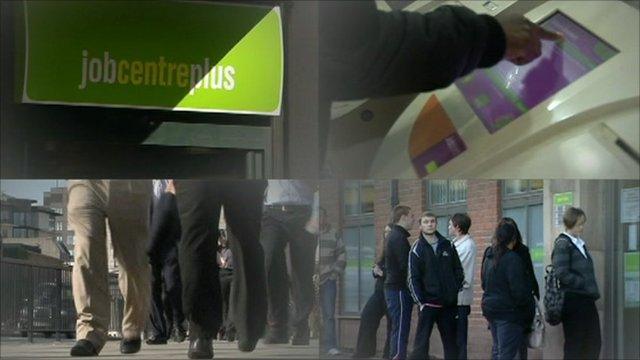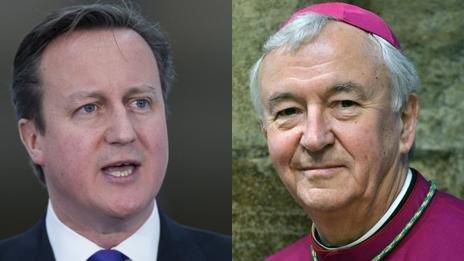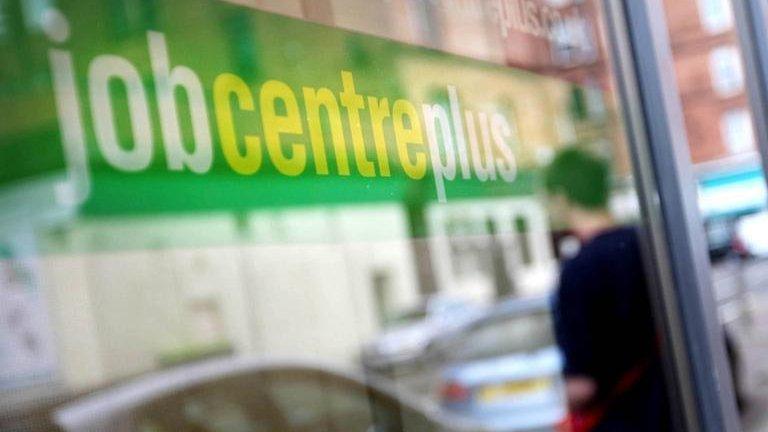Benefit changes tackle 'dependency', says Lord Freud
- Published
The UK government says universal credit will help tackle welfare dependency
Big benefit changes, which start being introduced in Wales next month, will help transform a "dependency" culture, according to the minister in charge.
Lord Freud defended the UK government's handling of universal credit, following criticism of the way it is being delivered.
From 7 April, some benefit recipients in Flintshire will be the first in Wales to move over to the new system.
It merges six working-age benefits and tax credits into one monthly payment.
Speaking to the BBC's Sunday Politics Wales, Welfare Reform Minister Lord Freud said that eventually 200,000 people in Wales will be better off as a result.
"What is clearly true is that this is a massive cultural transformation and we are developing it as we go along," he said.
Universal credit is arguably the biggest part of the changes to the welfare state being made by the Westminster coalition.
Separate benefits and tax credits will be rolled into a single payment that goes directly into recipients' bank accounts once a month.
The timetable for its introduction has slipped and more than £40m has been written off on software and computing costs in implementing the new system.
But Lord Freud said: "What we are doing is making sure we roll out universal credit really safely and securely.
"It's much more than an IT system - it is a complete cultural change for all benefit recipients and actually for our operational staff as well.
"So it's vital that we get this transformation of our welfare system right and that's what we are doing."
He said the changes had "moved from being just a reform of a benefit into being a transformation of a culture of dependency that we have in this country".
He was speaking during a visit to the Jobcentre Plus in Shotton on Deeside - the first part of Wales to start signing people up for universal credit.
'Lack of clarity'
To begin with, only new claimants in the area who are single and have no children or dependants will be included.
The Department for Work and Pensions (DWP) says it is difficult to estimate how many people will be involved initially. New claims from couples and families will be included later in the year.
Most existing benefit claimants are expected to move over to universal credit during 2016 and 2017, the DWP says.
The Welsh government has complained about a lack of information about how its budget will be affected.
Wales's Tackling Poverty Minister Jeff Cuthbert criticised a "lack of clarity" from the DWP about who will be entitled to so-called passported benefits in future - things such as free school meals that are available to welfare claimants.
Lord Freud said that initially all universal credit claimants will get passported benefits.
"When we move on to the next stages we will have a more elaborate system to make sure that broadly the people who are receiving passported benefits continue to receive them," he added.
Sunday Politics Wales, BBC One Wales, Sunday, 16 March, 11:00 GMT
- Published8 May 2013

- Published2 March 2014

- Published19 February 2014

- Published6 February 2014

- Published15 February 2015
